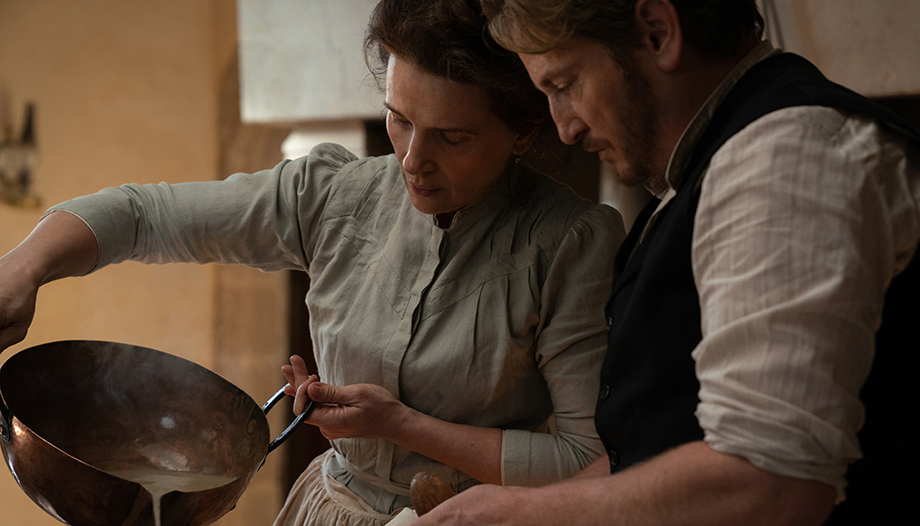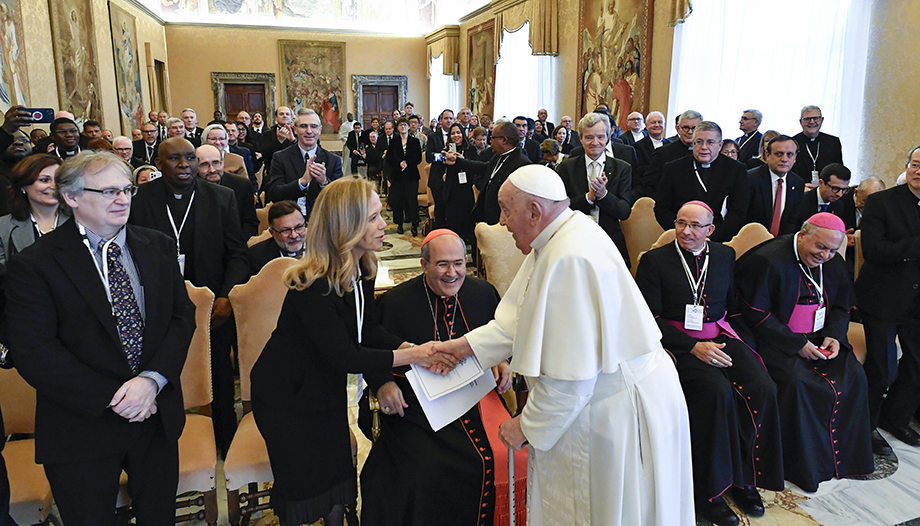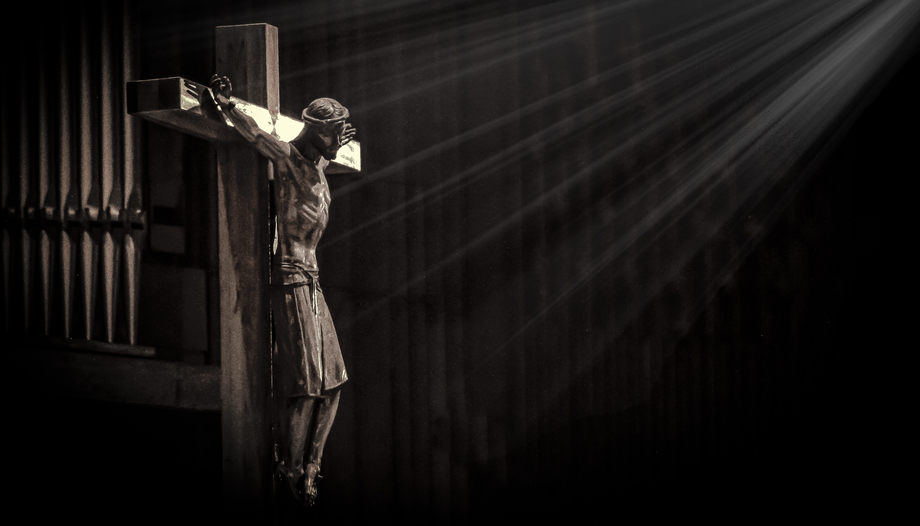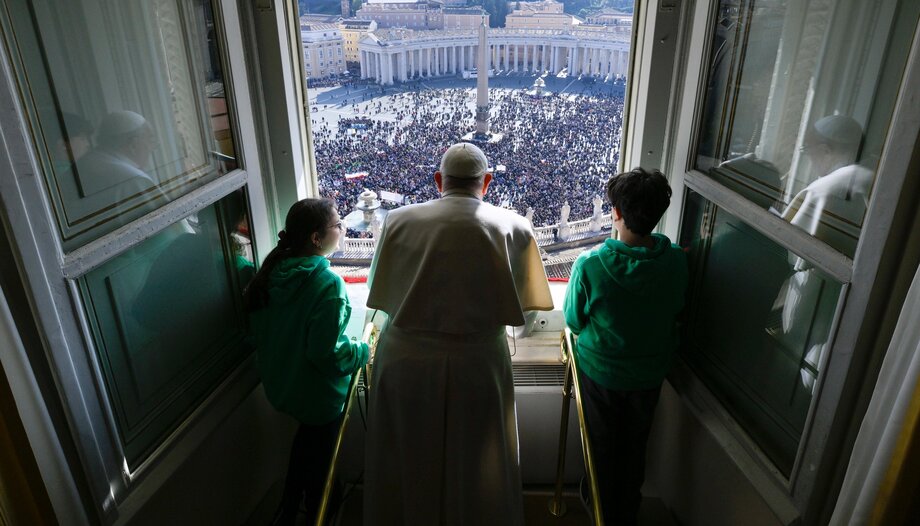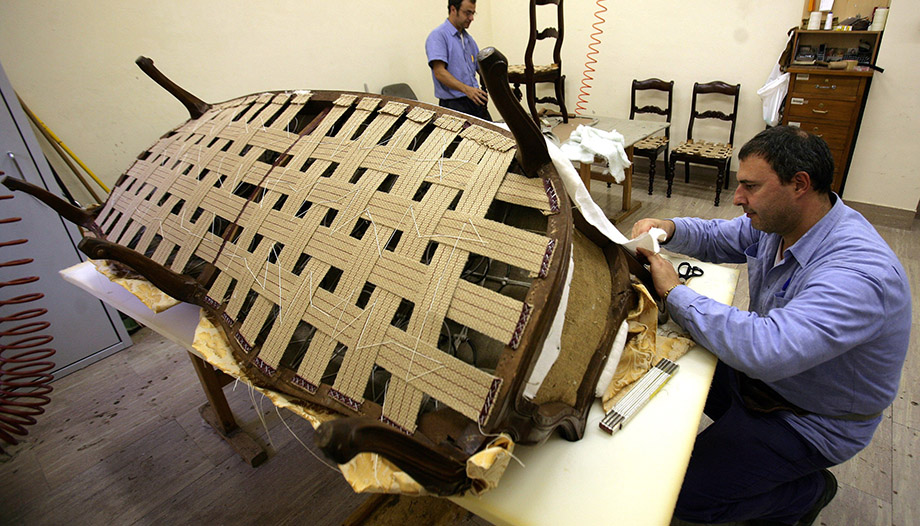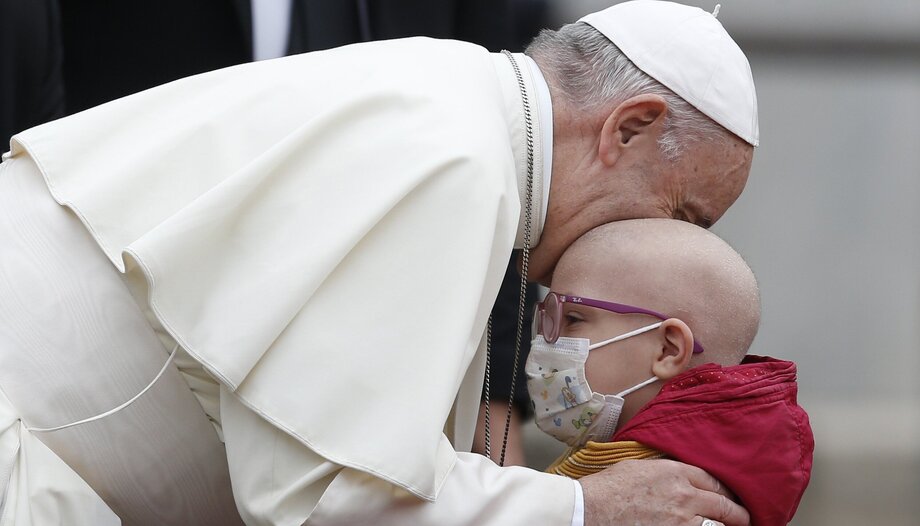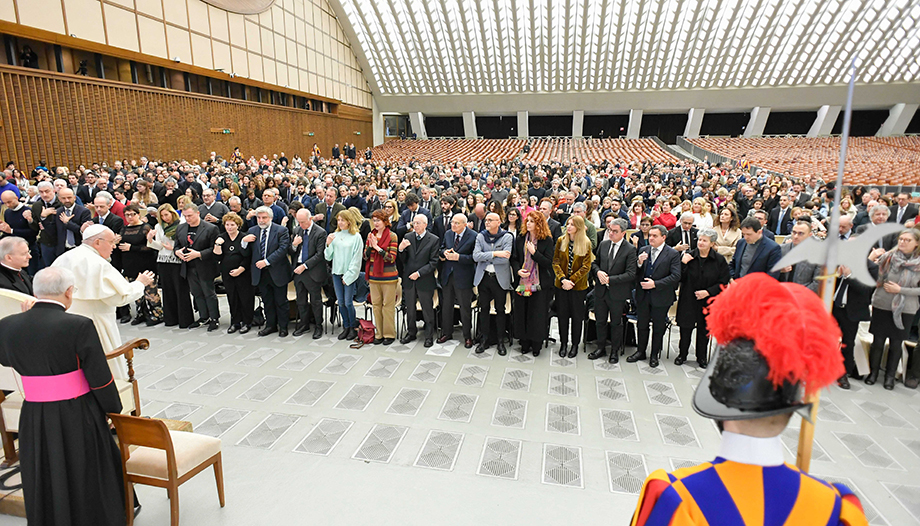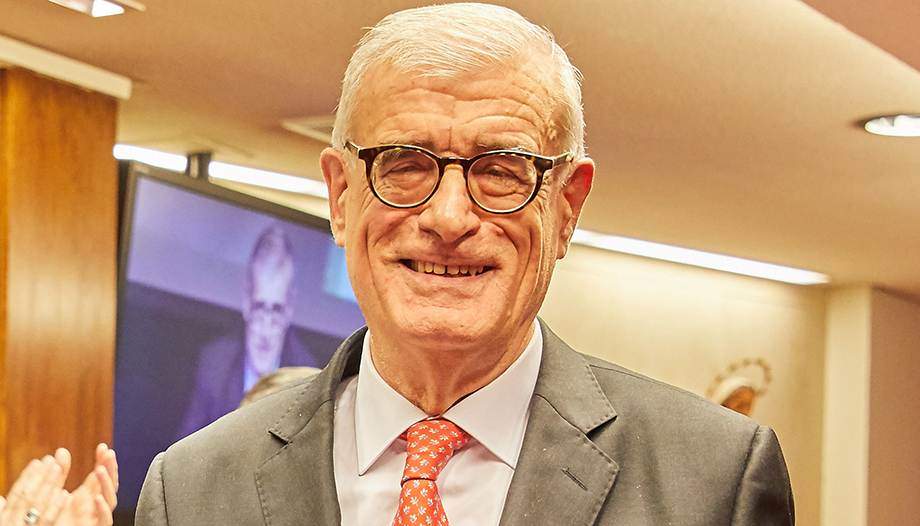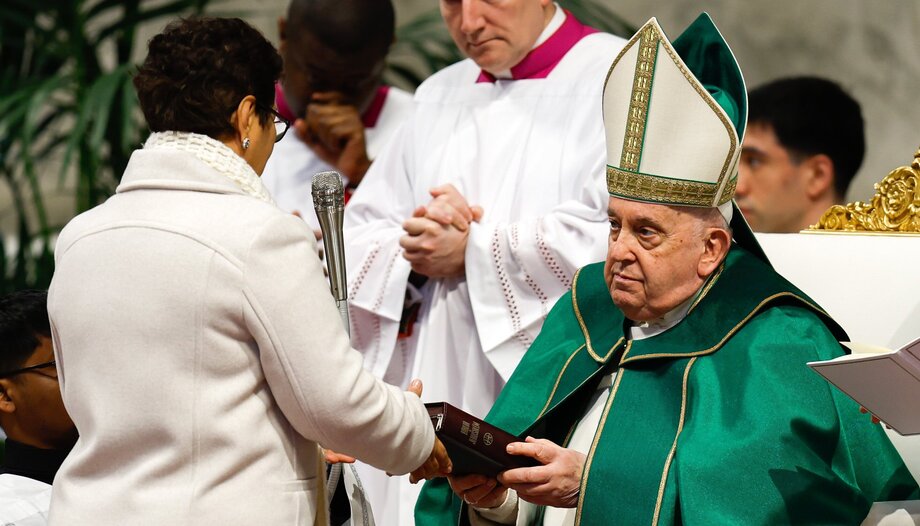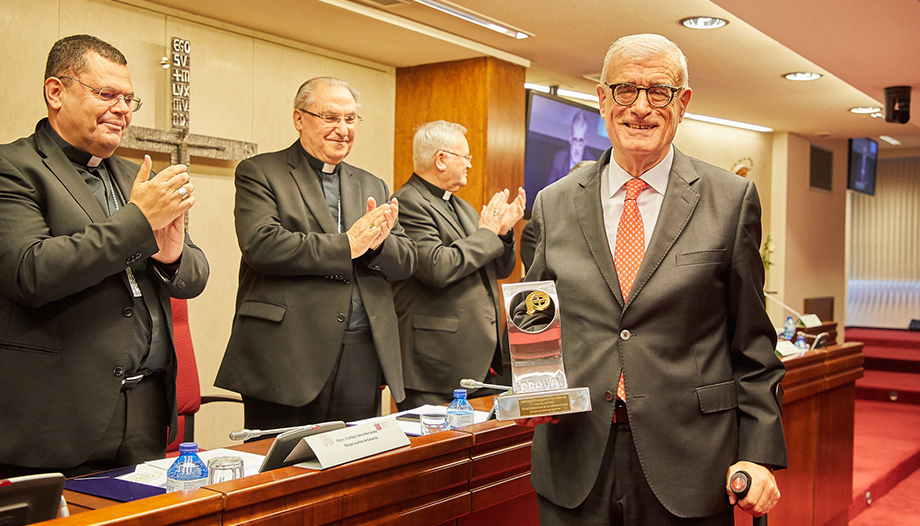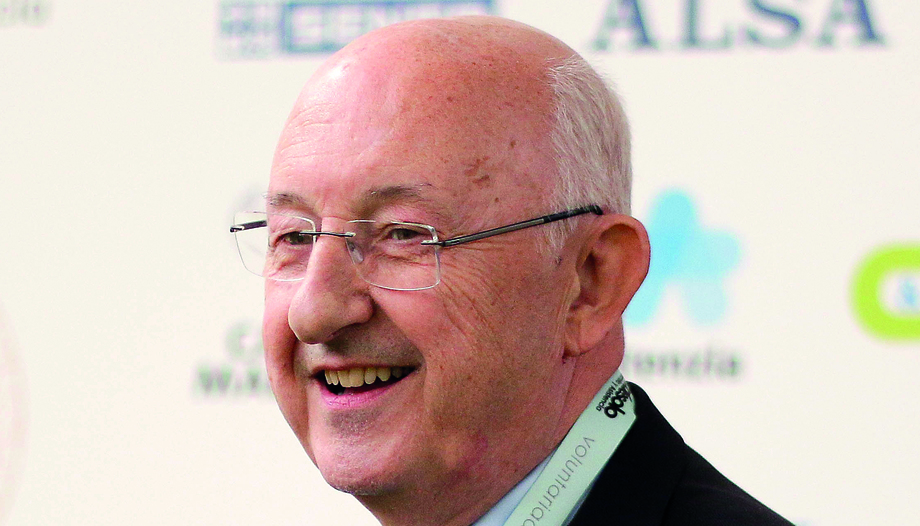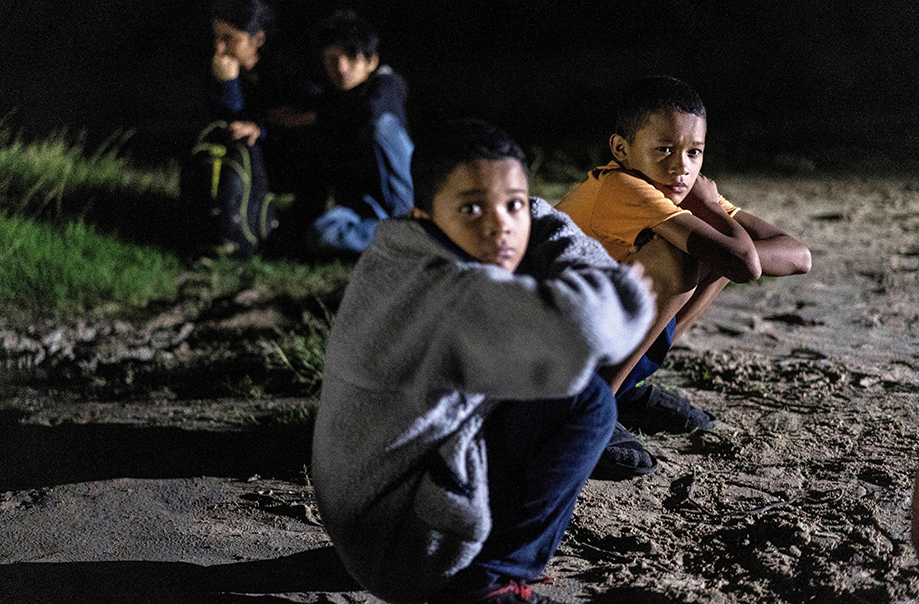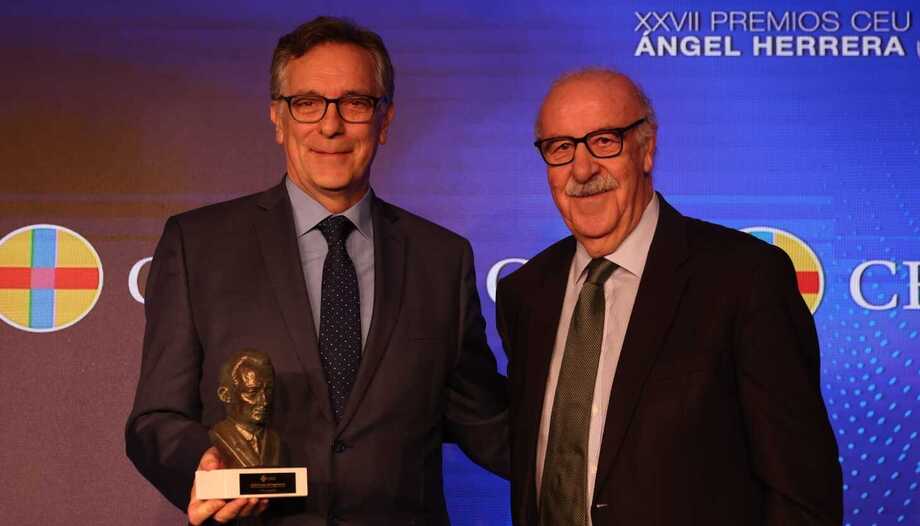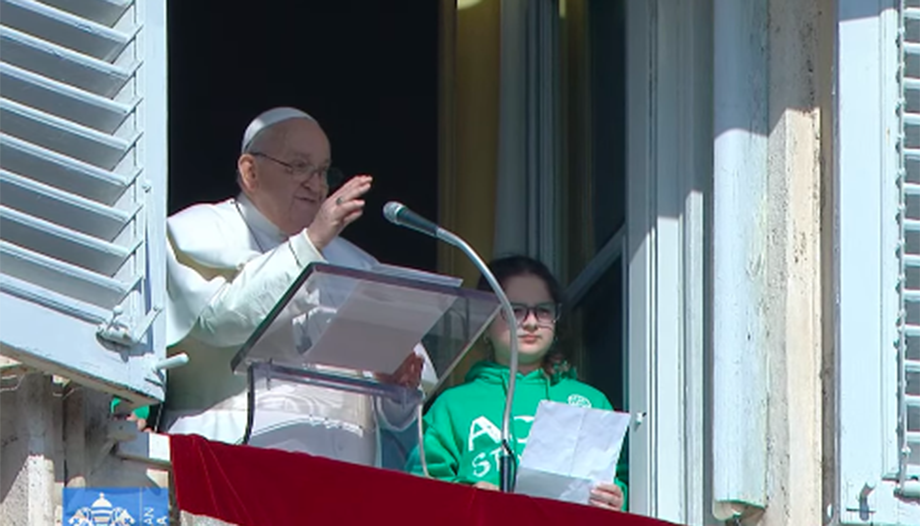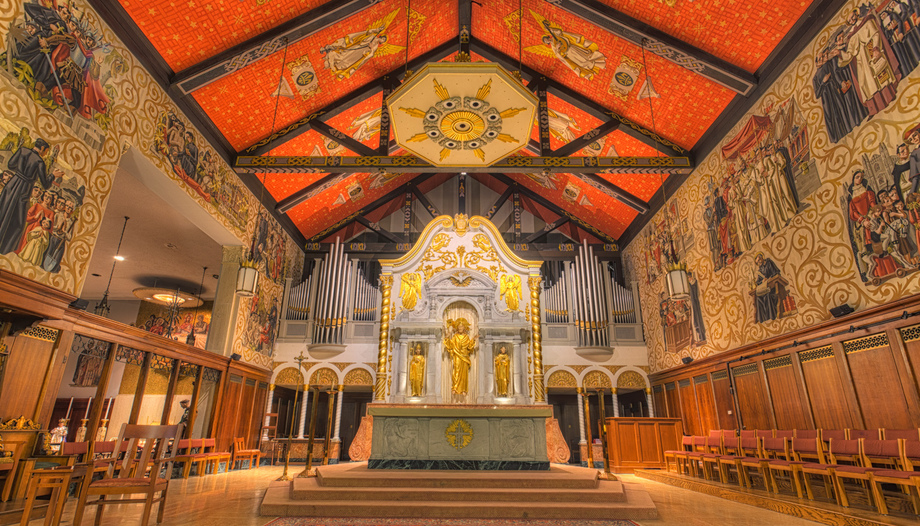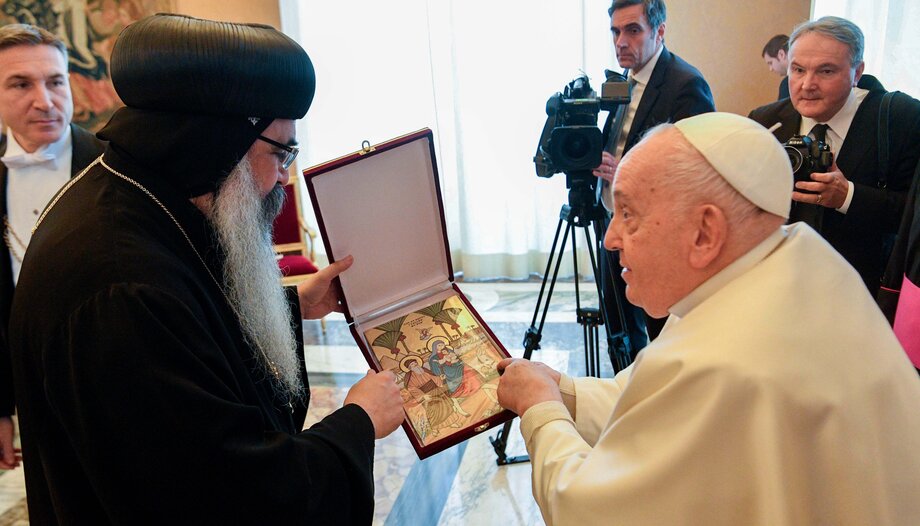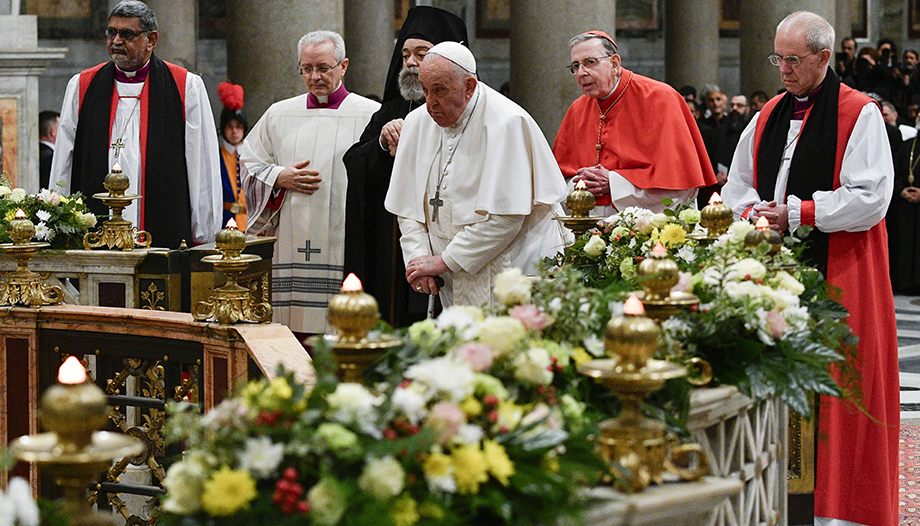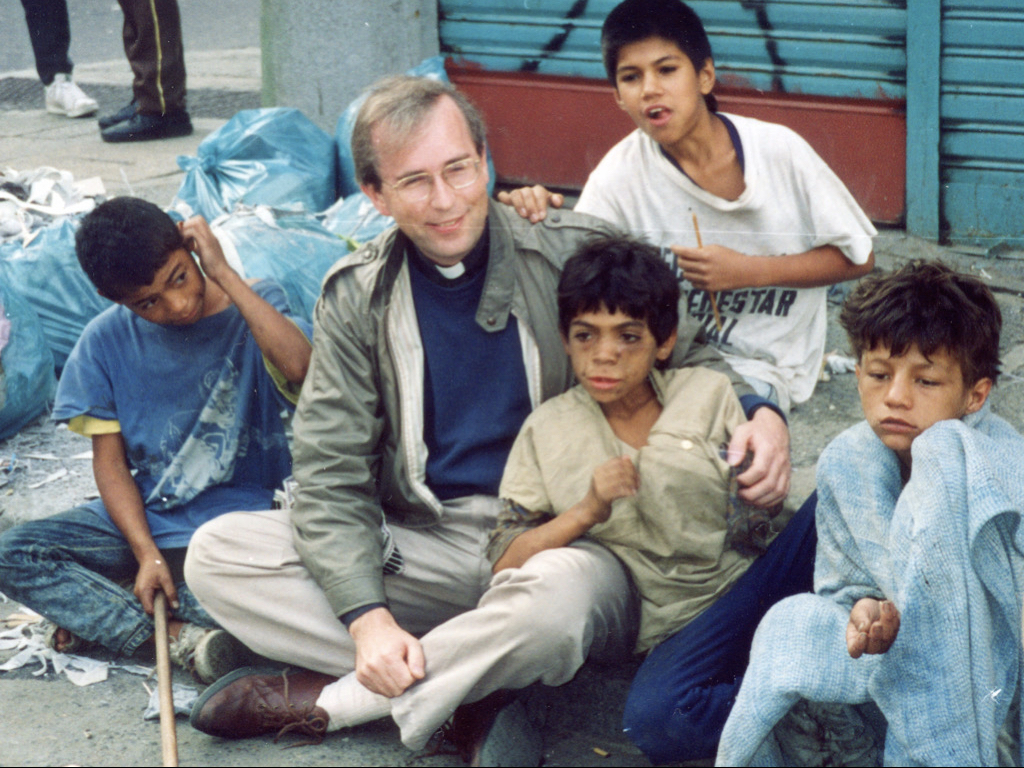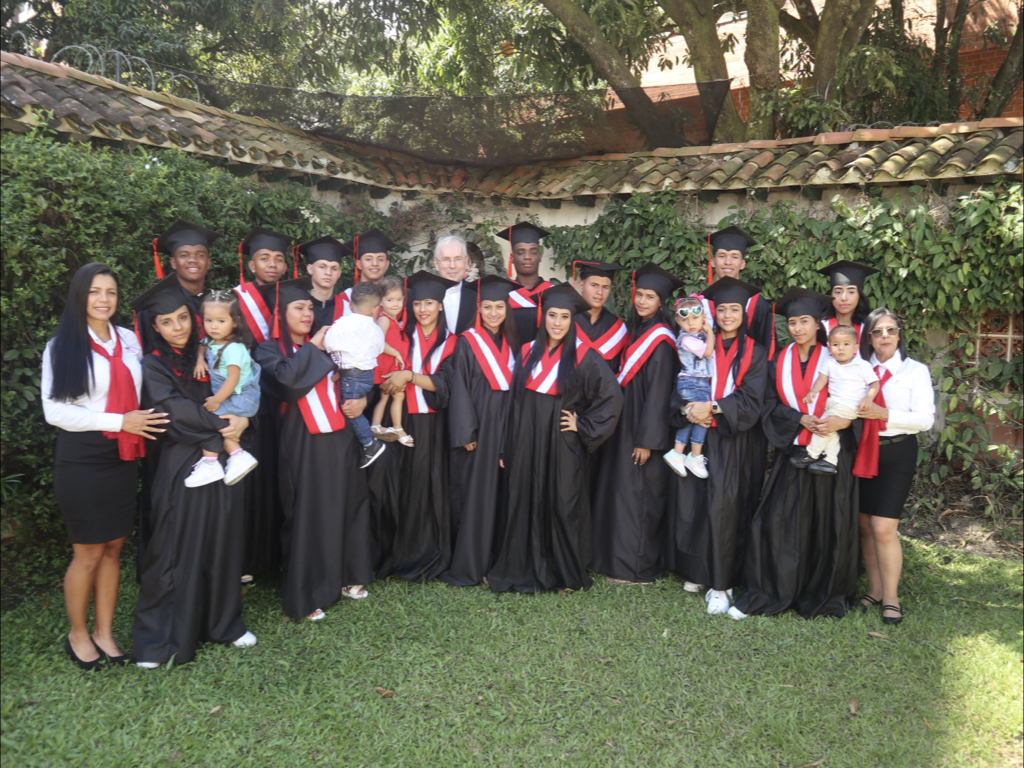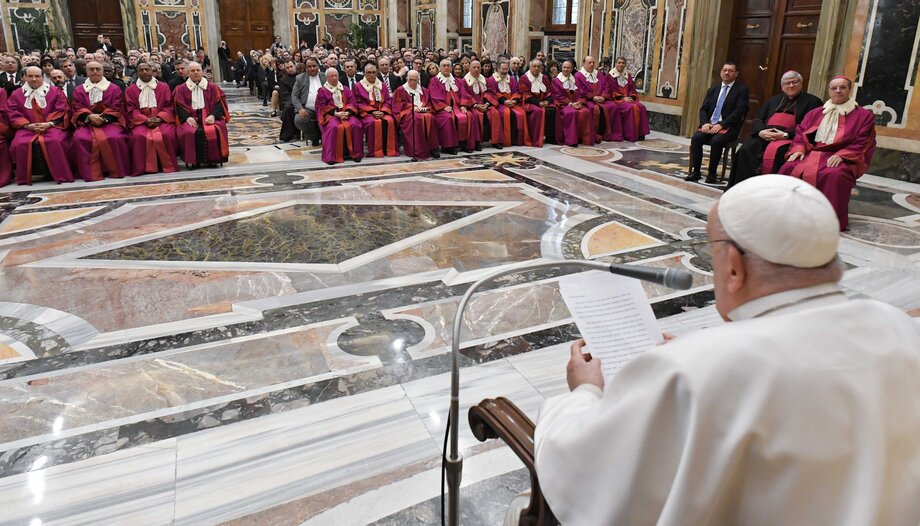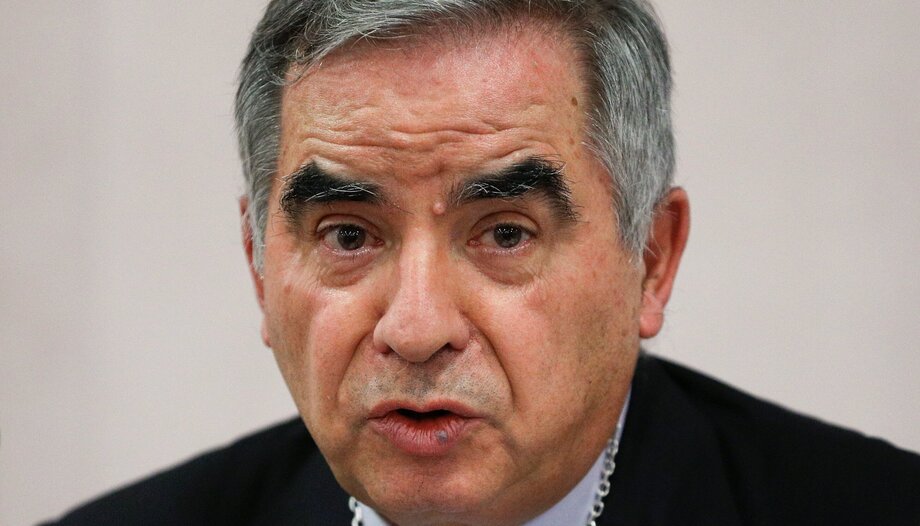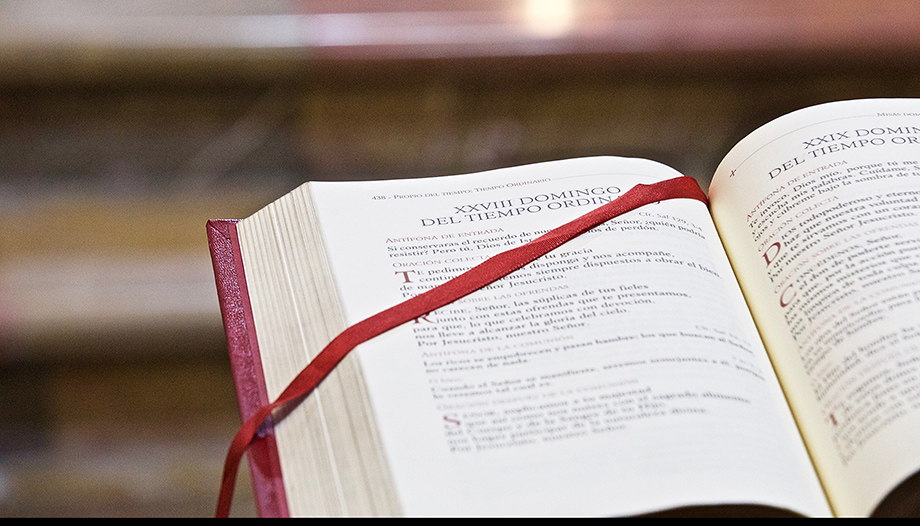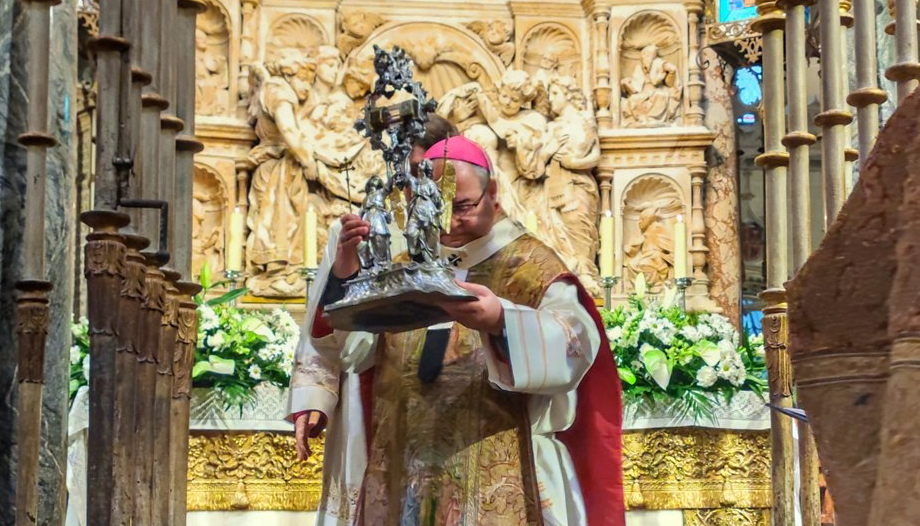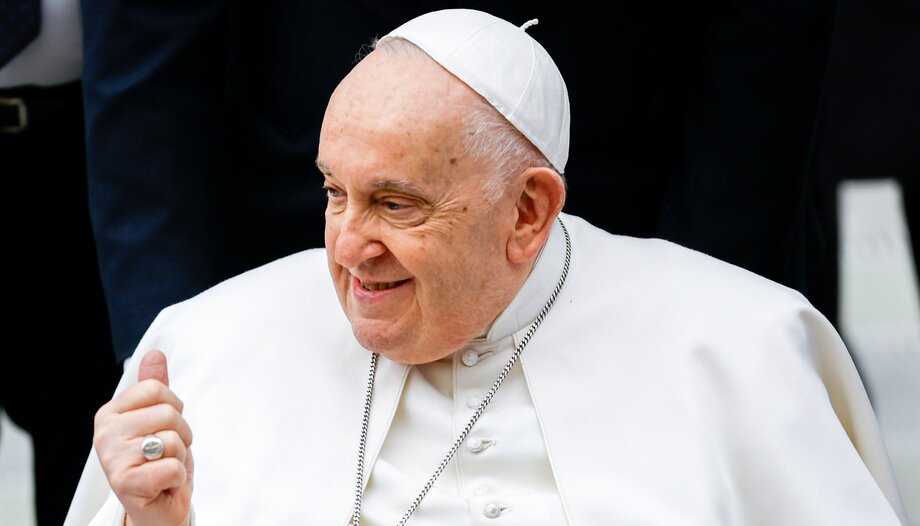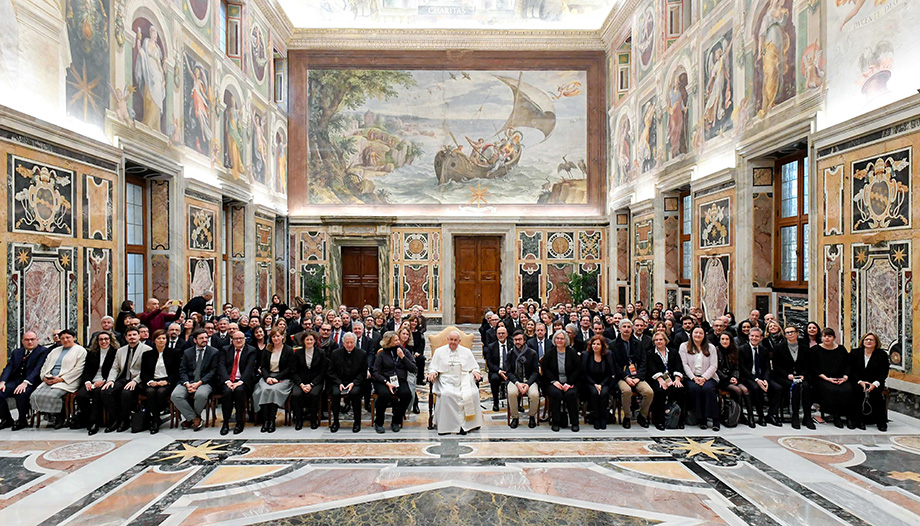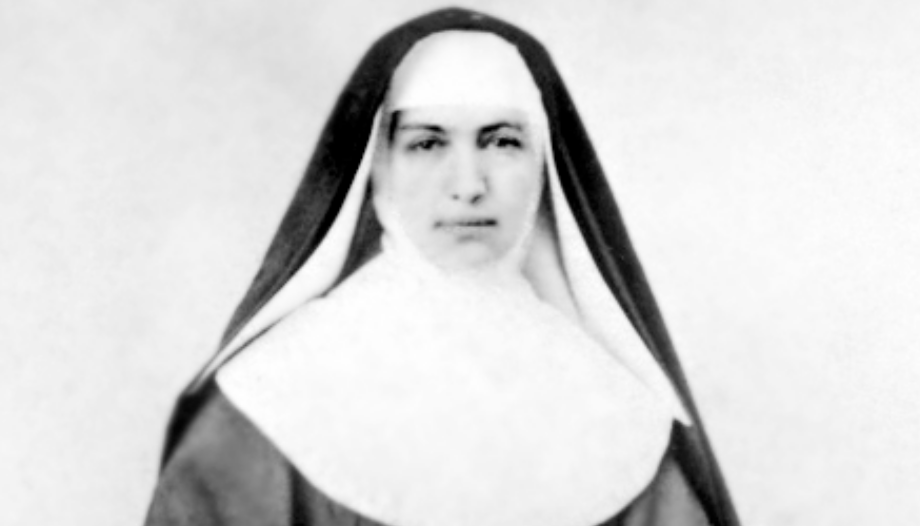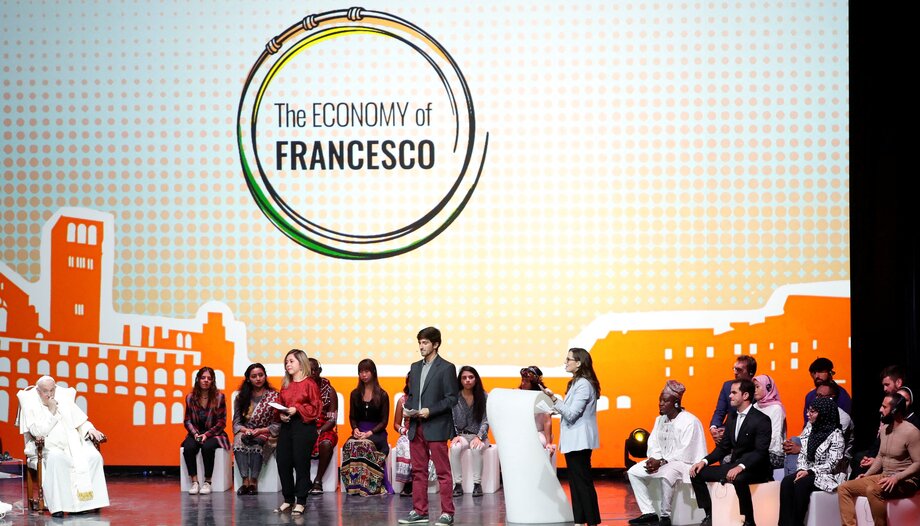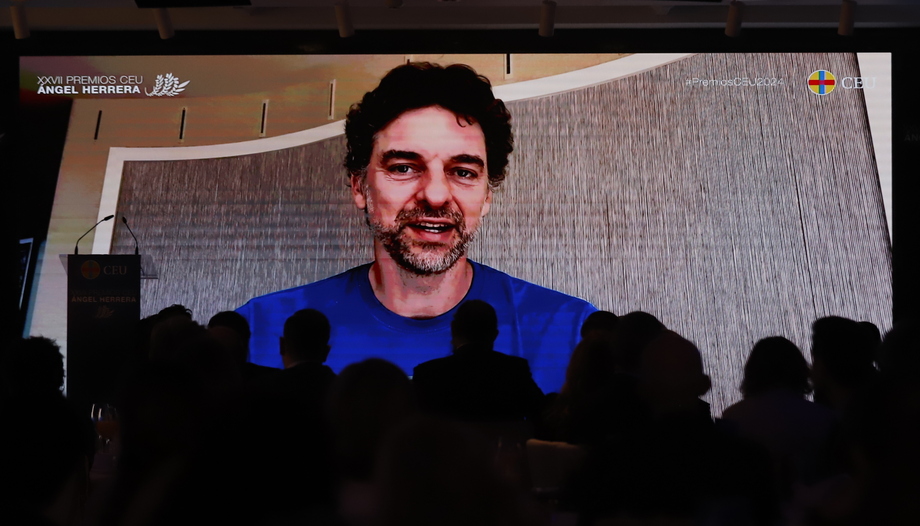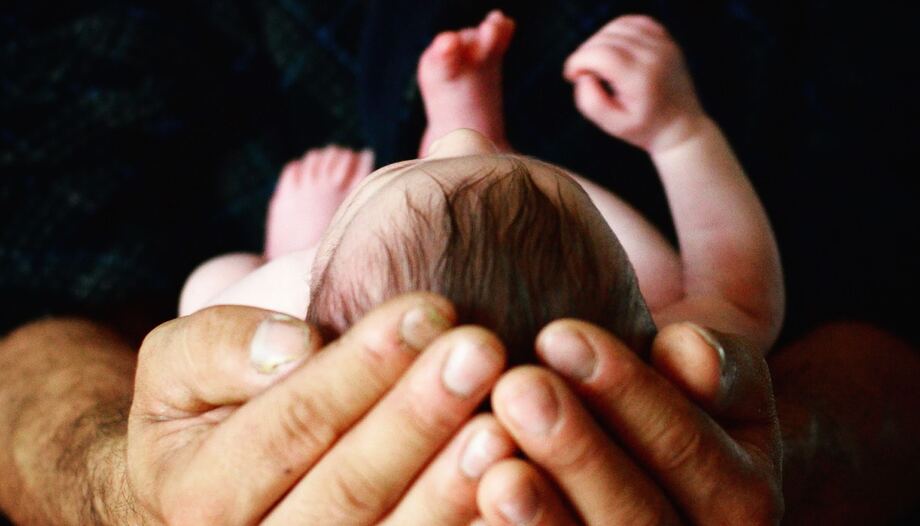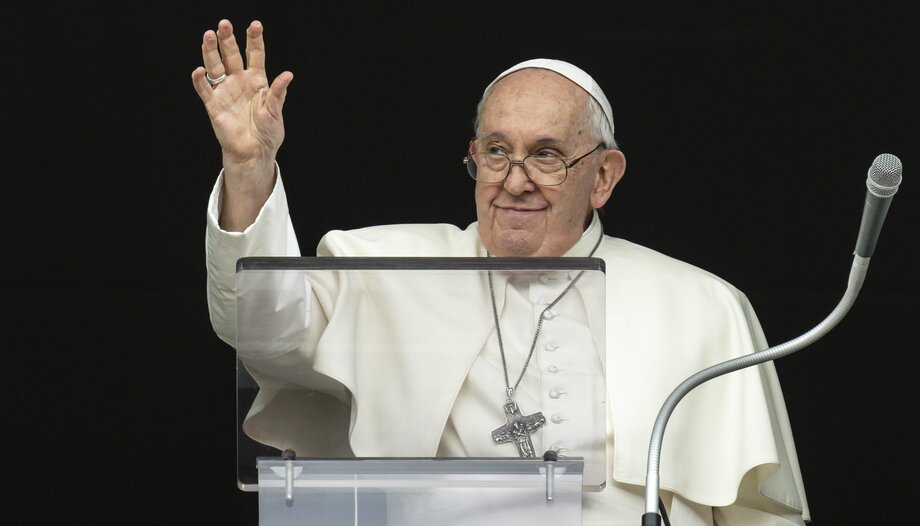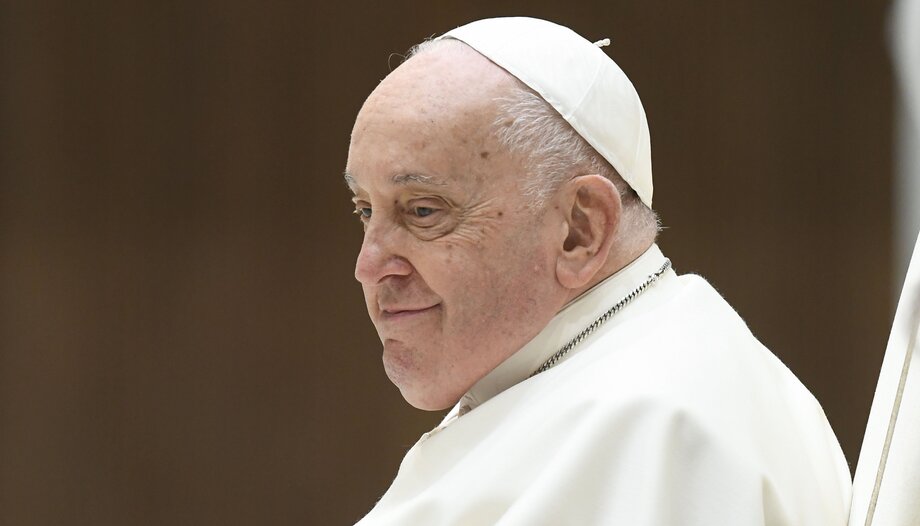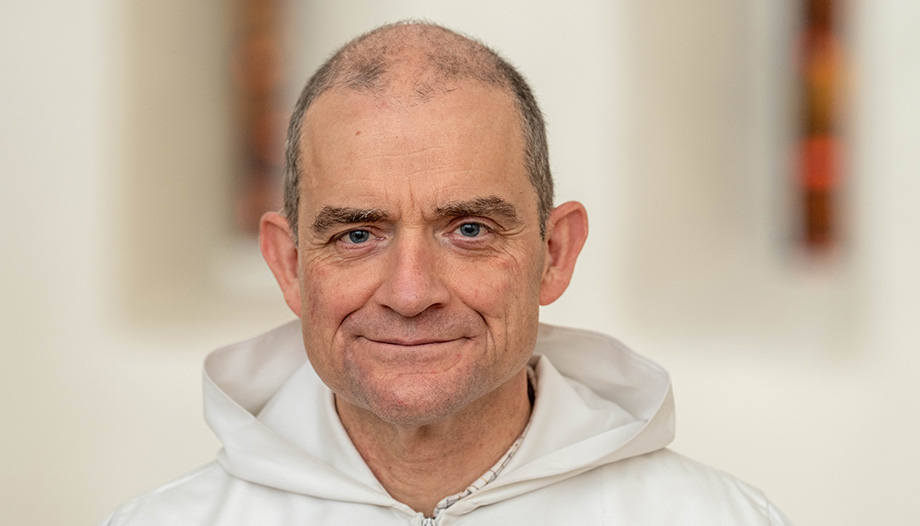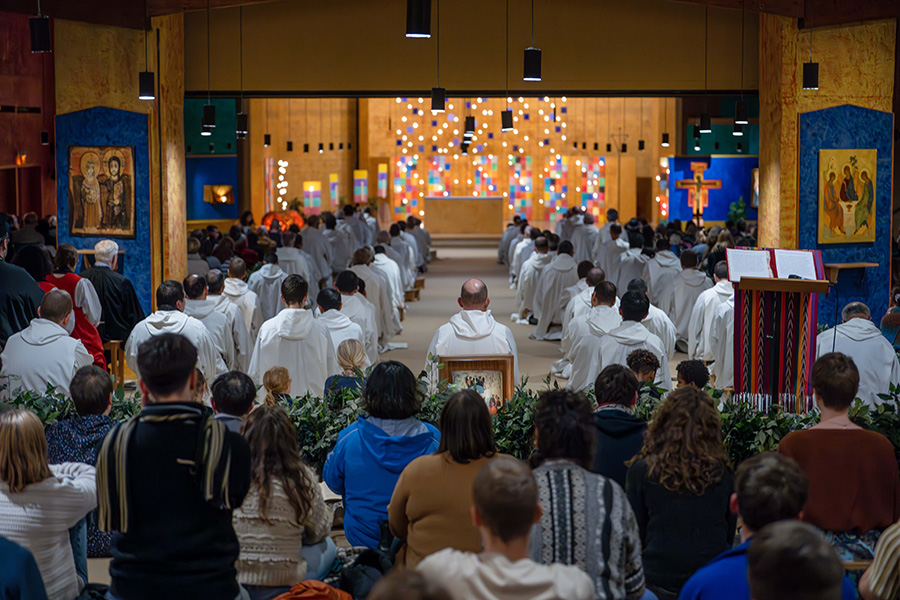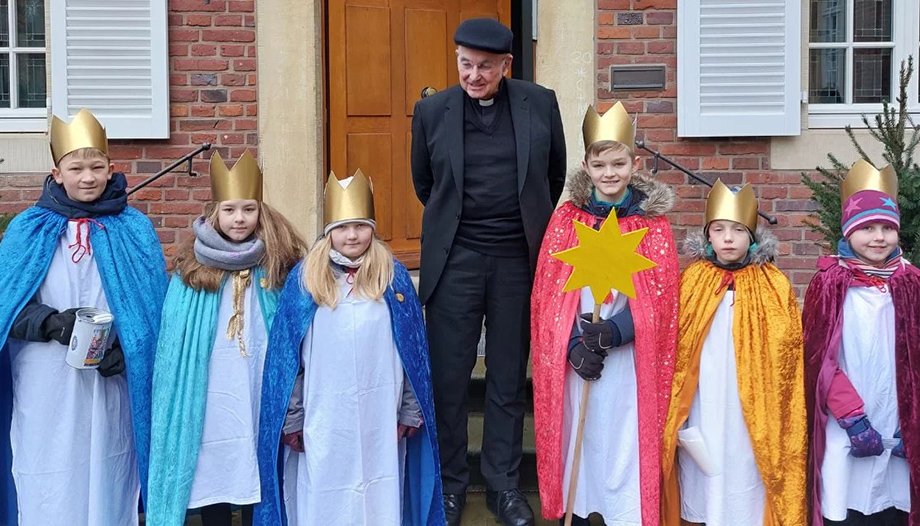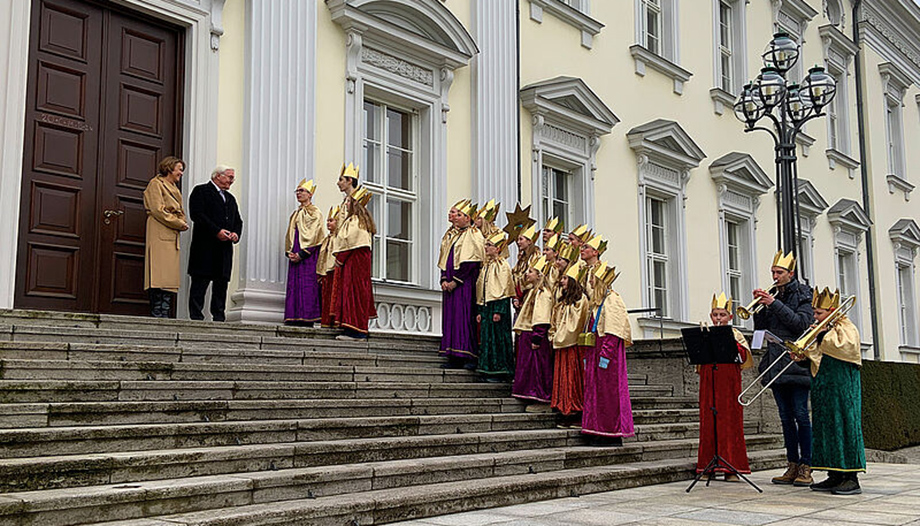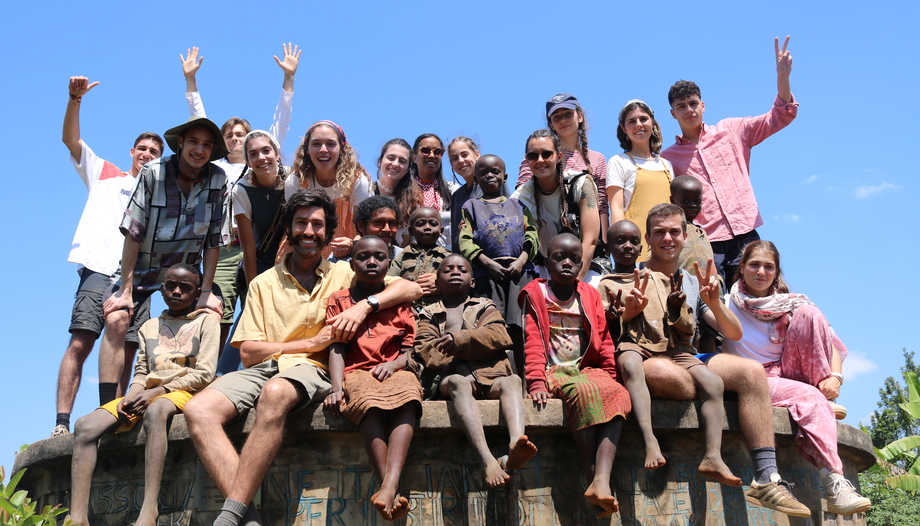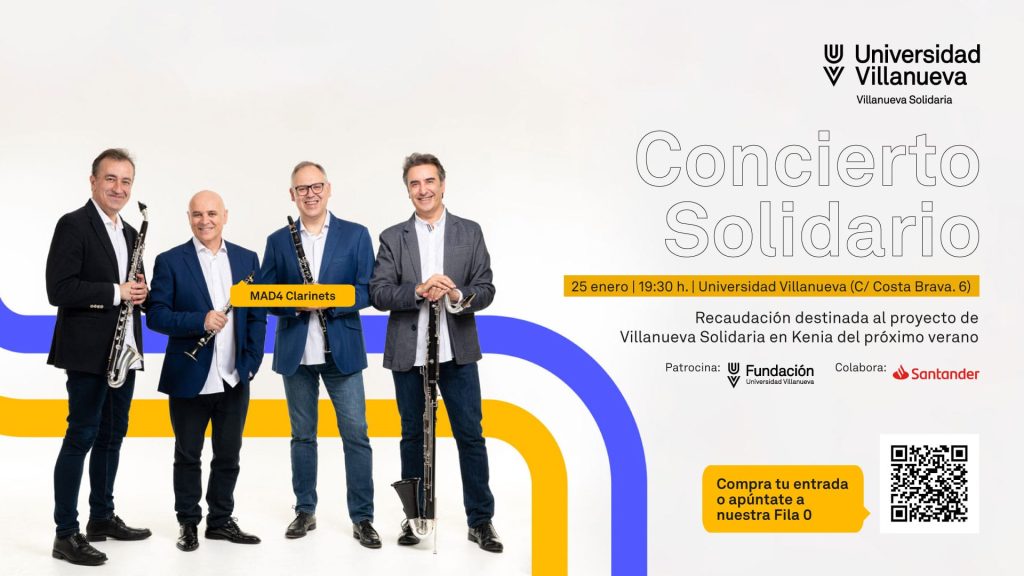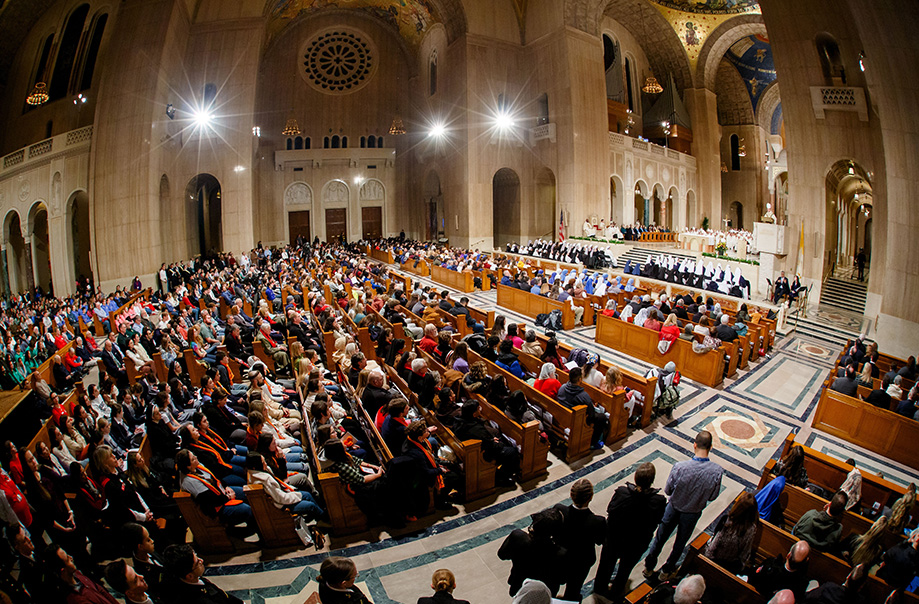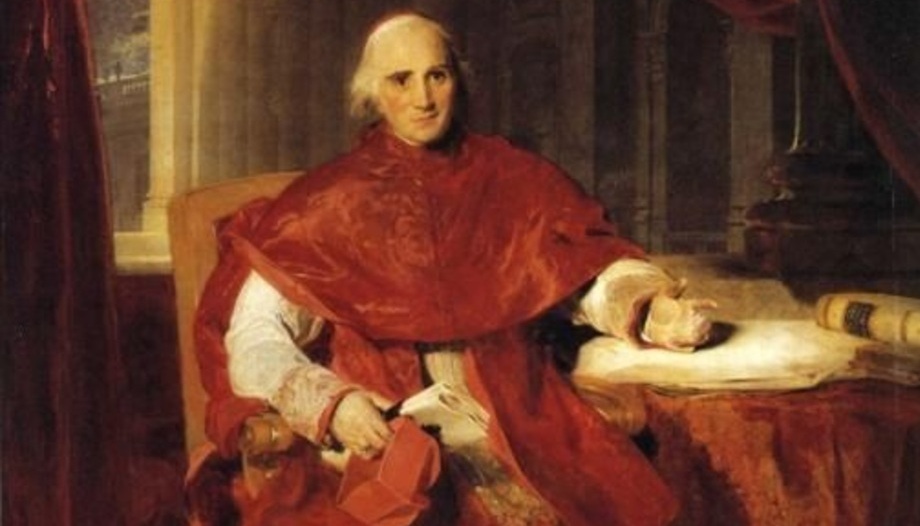When people want to undertake an initiative, they usually start by looking at the organizational aspects: what people or resources they can count on to achieve their goal in the best possible way. Who, however, thinks of praying first? Obviously, it is very difficult for those who have never experienced the power of prayer to understand that, in order to prepare for an important event or choice in life, prayer is not only advisable, it is indispensable.
In this perspective, it is significant and a great lesson that Pope Francis offers us with this initiative. In the Angelus of January 21The Pope has officially launched the Year of Prayer in preparation for the Jubilee of 2025, encouraging us to pray that this Holy Year will have an impact on the whole Church, on the holiness of Christians. It will certainly require the organization and work of many people, but only with remote preparation in prayer will this Jubilee bear fruits of grace and reconciliation.
At the presentation of the initiative in the Vatican press room, Monsignor Rino Fisichella, Pro-prefect of the Dicastery for Evangelization, hoped that this would be a year in which to rediscover "how to pray and, above all, how to educate people to pray today, in the age of digital culture, so that prayer can be effective and fruitful". The Pontiff, at the Angelus, spoke explicitly of an absolute need for prayer, for a "symphony" of prayer at both the personal and community levels. At the press conference of January 23, 2024, he specified what the characteristics of this prayer should be: to be before the Lord in a relationship of trust and friendship, ready to listen to him. And to thank him.
Through prayer we will also grow in our capacity to pay attention to others, to welcome them and to reach out to them with a merciful heart like that of Jesus.
In the preface to "Praying Today. A Challenge to Overcome," the first of eight books that the Dicastery for Evangelization is about to publish, the Pope writes: "Prayer is the breath of faith, it is its most appropriate expression. Like a cry that comes from the heart of those who believe and entrust themselves to God." In this year, with the Jubilee just around the corner, says the Holy Father, "we are invited to be more humble and to give space to the prayer that flows from the Holy Spirit".
Truly, since the beginning of his pontificate, that of prayer has been one of the most recurring themes, a theme to which he has dedicated no less than 38 general audiences throughout 2020 and 2021 with reflections and suggestions that are profound and at the same time simple, concrete, full of common sense and also of that good humor that characterizes him.
In the coming months the Pope will create a "School of Prayer", but it will be above all the local Churches that will be called upon to develop initiatives that will help the faithful to rediscover prayer as "nourishment for the Christian life of faith, hope and charity". For these reasons, I have collected in a small anthology phrases and considerations of Pope Francis that help to better understand why and how to pray.
Pope Francis talks about prayer, explaining why and how to pray
Texts of Pope Francis collected by Arturo Cattaneo
The Holy Father speaks of prayer in practically all his texts, exhortations, homilies, letters, audiences, etc. A theme to which he has also dedicated no less than 38 general audiences during 2020 and 2021. They can be downloaded for example with this link.
Below, you will find his phrases or reflections that I have found particularly significant, arranged in six chapters.
What is prayer
Prayer is the breath of the soul, the breath of faith. In a relationship of trust, in a relationship of love, dialogue cannot be absent, and prayer is the dialogue of the soul with God. It is important to find moments in the day to open the heart to God, even with simple words (Discourse, 14-XII-2014).
The Christian's prayer, on the other hand, is born of a revelation: the "You" has not remained shrouded in mystery, but has entered into a relationship with us... The Christian's prayer enters into a relationship with the most tender-faced God, who does not wish to instill any fear in mankind. This is the first characteristic of Christian prayer. If people have always been accustomed to approaching God with a certain intimidation, a certain fear of this fascinating and terrible mystery, if they have been accustomed to venerating him with a servile attitude, similar to that of a subject who does not want to disrespect his master, Christians turn to him instead, daring to call him with confidence by the name of "Father". Even more, Jesus uses another word: "father" (General Audience, May 13, 1920).
Prayer is an encounter with God, with God who never disappoints; with God who is faithful to his word; with God who does not abandon his children (Homily, June 29, 2015).
To pray is to give time back to God, to get out of the obsession of a life that always lacks time, to rediscover the peace of necessary things and to discover the joy of unexpected gifts (General Audience, 26-VIII-2015).
Why pray
Why do I pray? I pray because I am in need. This I feel, what drives me, as if God is calling me to speak (Interview of Pope Francis with young people in Belgium, 31-III-2014).
The encounter with God in prayer will help you to know the Lord and yourselves better. The voice of Jesus will set your hearts on fire and your eyes will be opened to recognize his presence in your history, thus discovering the plan of love that he has for your life (Message for the XXX WYD, 17-II-2015).
Prayer gives us the grace to live faithful to God's plan (General Audience, April 17, 2013).
Each story is unique, but they all start from an encounter that illuminates the depths, touches the heart and involves the whole person: affections, intellect, senses, everything. It is a love so great, so beautiful, so true, that it deserves everything and deserves all our trust (Meeting with the young people of Umbria, October 4, 2013).
Another important element is the awareness of feeling part of a greater plan, to which one wishes to offer one's contribution (General Audience, 7-XII-2022).
God calls us to struggle with Him, every day, at every moment, to overcome evil with good (Speech, October 20, 2013).
Faith does not take us away from the world, but inserts us more deeply into it. This is very important! We must enter the world, but with the strength of prayer. Each of us plays a special role in preparing for the coming of the Kingdom of God in the world (Address in Manila, 16-I-2015).
Prayer, fasting and almsgiving help us not to let ourselves be dominated by things that appear: what counts is not appearance; the value of life does not depend on the approval of others or success, but on what we have inside (Homily, 05-III-2014).
Prayer preserves man from the protagonism by which everything revolves around him, from indifference and victimhood (Discourse, 15-VI-2014).
With prayer we allow the Holy Spirit to enlighten us and advise us on what we should do at that moment (General Audience, 07-V-2014).
Without prayer our action becomes empty and our proclamation has no soul, because it is not animated by the Spirit (General Audience, May 22, 2013).
Prayer is not a sedative to alleviate the anxieties of life; or, in any case, such prayer is certainly not Christian. Rather, prayer empowers each of us (General Audience, October 21, 2020).
The first motivation to evangelize is the love of Jesus that we have received, that experience of being saved by Him that moves us to love Him more and more. But what love is that which does not feel the need to speak of the loved one, to show him, to make him known? If we do not feel the intense desire to communicate it, we need to stop in prayer to ask Him to captivate us again. We need to cry out every day, to ask for His grace to open our cold hearts and shake our lukewarm and superficial lives. Standing before him with an open heart, letting him contemplate us, we recognize the gaze of love that Nathanael discovered the day Jesus appeared and said to him: "When you were under the fig tree, I saw you" (Jn 1:48). How sweet it is to stand before a crucifix, or kneel before the Blessed Sacrament, and simply be before his eyes! How good it is to let him touch our existence and launch us out to communicate his new life. (Apostolic Exhortation Evangelii gaudium 264).
How to pray
Simplicity, humility, attentiveness, understanding and silence: these are the five qualities that correspond to the five fingers.
The thumb is the biggest finger, so it is also the finger of praise to God. But it is also the finger that is closest to us and tells us to pray for those closest to us, for our loved ones, for our friends. The index finger is the finger that teaches, that shows us the way and the path to follow. We pray for all those who in life teach us or will teach us something.
The middle finger reminds us of those who govern us. To them, God has entrusted the destiny of the nations, and for them we pray that they may always follow the teachings of Jesus in their duty. The ring finger is the finger of promise: we ask God to protect those we love the most, as well as the weakest and neediest.
The little finger is the smallest finger. It teaches and reminds us to pray for the children. It also reminds us to make ourselves small like them and not to fall into pride.
Pray in a simple way, but concrete at the same time. And, since we have two hands, prayer can also be repeated a second time. Because we know that "praying is the oxygen of our soul" and of our spiritual life (Written by Jorge Mario Bergoglio, when he was Archbishop of Buenos Aires).
True prayer is familiarity and trust with God, it is not reciting prayers like a parrot... Being in prayer does not mean saying words, words, words: no, it means opening my heart to Jesus, getting close to Jesus, letting him enter my heart and making me feel his presence there. And there we can discern when it is Jesus or when it is us with our thoughts, so often far from Jesus. Let us ask for this grace: to live a relationship of friendship with the Lord, as a friend speaks to his friend (General Audience, 28-IX-2022).
When we pray we must be humble: this is the first attitude to go to prayer. Then our words will really be prayers and not gibberish that God rejects (General Audience, May 26, 2011).
At the origin of every vocation there is always a strong experience of God, an experience that is not forgotten, it is remembered all our lives! God always surprises us! It is God who calls; but it is important to have a daily relationship with Him, to listen to Him in silence before the Tabernacle and in the depths of ourselves, to speak with Him, to approach the Sacraments. Having this familiar relationship with the Lord is like having the window of our life open, so that he can let us hear his voice, what he wants from us (To the young people in Assisi, October 5, 2013).
This is the way to accept God, not ability, but humility: to recognize oneself as a sinner. To confess, first to oneself and then to the priest in the sacrament of reconciliation, one's sins, one's shortcomings, one's hypocrisies; to come down from the pedestal and immerse oneself in the water of repentance (Angelus, 4-XII-2022).
We must take off our masks-everyone has one-and put ourselves on the same level as the humble; free ourselves from the presumption of believing we are self-sufficient, go and confess our sins, the hidden ones, and accept God's forgiveness, ask forgiveness of those we have offended. Thus begins a new life (Angelus, 4-XII-2022).
Prayer unceasingly purifies the heart. Praise and supplication to God prevent the heart from hardening into resentment and selfishness (General Audience, 11.III.2015).
It is the Holy Spirit who gives life to the soul! Let him enter. Speak to the Spirit as you speak to the Father, as you speak to the Son: speak to the Holy Spirit, who has nothing paralyzing about him! In him is the strength of the Church; it is he who carries you forward (General Audience, December 21, 2022).
With a friend we talk, we share the most secret things. With Jesus we also converse. Prayer is a challenge and an adventure, and what an adventure! It allows us to know him better and better, to enter into his depths and to grow in an ever stronger union. Prayer allows us to tell him everything that happens to us and to remain confidently in his arms, and at the same time it gives us moments of precious intimacy and affection, where Jesus pours his own life into us. By praying, we "open the way" to Him, we give Him room "so that He can act and enter and conquer" (Apostolic Exhortation Christus vivit 155).
In this way it is possible to experience a constant unity with him that surpasses anything we can experience with other people: "It is no longer I who live, but Christ who lives in me" (Gal 2:20). Do not deprive your youth of this friendship. You will be able to feel him at your side not only when you pray. You will recognize that he walks with you at all times. Try to discover it and you will live the beautiful experience of knowing that you are always accompanied. This is what the disciples of Emmaus experienced when, while they were walking and conversing in disorientation, Jesus made himself present and "walked with them" (Lk 24:15). Christus vivit 156).
A young man to the Pope: "Can you explain to me how you pray and why you pray? As concretely as possible...".
How I pray... Many times I pick up the Bible, read a little, then put it down and let the Lord look at me: that is the most common idea of my prayer. I let Him look at me. And I feel - but it is not sentimentalism - I feel deeply the things the Lord tells me. Sometimes He doesn't speak... nothing, empty, empty, empty, empty... but patiently I stay there, and so I pray... I sit, I pray sitting down, because it hurts me to kneel, and sometimes I fall asleep praying... It is also a way of praying, like a son with the Father, and this is important: I feel like a son with the Father (Interview of Pope Francis to young people in Belgium, 31-III-2014).
Jesus, teacher of prayer
Jesus has constant recourse to the power of prayer. The Gospels show this when he withdraws to secluded places to pray. These are sober and discreet observations, which leave us only to imagine these prayerful dialogues. They clearly testify that, even in his moments of greatest dedication to the poor and the sick, Jesus never neglected his intimate dialogue with the Father. The more immersed he was in the needs of the people, the more he felt the need to rest in the Trinitarian Communion, to return to the Father and the Spirit.
In the life of Jesus there is, therefore, a secret, hidden from human eyes, which represents the core of everything. The prayer of Jesus is a mysterious reality, of which we can only intuit something, but which allows us to read his entire mission in the right perspective. In those solitary hours - before dawn or at night - Jesus immerses himself in his intimacy with the Father, that is, in the Love for which every soul thirsts. This is what emerges from the first days of his public ministry.
One Sabbath, for example, the small town of Capernaum is transformed into a "field hospital": after sunset, all the sick are brought to Jesus and he heals them. But, before dawn, Jesus disappears: he withdraws to a solitary place and prays. Simon and the others look for him, and when they find him, they say to him, "They are all looking for you!" What does Jesus reply: "Let us go elsewhere, to the neighboring towns, so that I may preach there also; for that is why I have come out" (cf. Mk 1:35-38). Jesus is always beyond, beyond in prayer with the Father and beyond, in other towns, other horizons to go and preach, other towns.
Prayer is the rudder that guides Jesus' route. The stages of his mission are not dictated by success, nor by consensus, nor by that seductive phrase "everyone is looking for you". The less comfortable way is the one that traces the path of Jesus, but that obeys the inspiration of the Father, which Jesus listens to and welcomes in his solitary prayer.
The Catechism affirms: "By his prayer, Jesus teaches us to pray" (n. 2607). Therefore, from the example of Jesus we can draw some characteristics of Christian prayer.
Above all, it possesses a primacy: it is the first desire of the day, something practiced at dawn, before the world wakes up. It restores a soul to what would otherwise be breathless. A day lived without prayer runs the risk of becoming an annoying or boring experience: everything that happens to us could become for us an unbearable and blind fate. Jesus, however, educates in obedience to reality and therefore to listening. Prayer is above all listening and meeting with God. The problems of every day, then, do not become obstacles, but rather calls from God himself to listen and meet the one who is in front of us. The trials of life thus become occasions for growth in faith and charity. The daily journey, including the fatigues, acquires the perspective of a "vocation". Prayer has the power to transform into good what in life would otherwise be a condemnation; prayer has the power to open a great horizon to the mind and to enlarge the heart.
Secondly, prayer is an art to be practiced with insistence. Jesus himself tells us: call, call, call. We are all capable of episodic prayers, born of the emotion of a moment; but Jesus educates us in another type of prayer: the one that knows a discipline, an exercise and is assumed within a rule of life. A persevering prayer produces a progressive transformation, makes us strong in periods of tribulation, gives us the grace of being sustained by the One who loves us and protects us always.
Another characteristic of Jesus' prayer is solitude. The one who prays does not escape from the world, but prefers deserted places. There, in silence, many voices that we hide in intimacy can emerge: the most repressed desires, the truths that we persist in suffocating, etc. And above all, in silence God speaks. Every person needs a space for himself, where he can cultivate his inner life, where actions find meaning. Without interior life we become superficial, restless, anxious - how bad anxiety makes us - that is why we have to go to prayer; without interior life we flee from reality, and we also flee from ourselves, we are men and women always on the run.
Finally, the prayer of Jesus is the place where we perceive that everything comes from God and He returns. Sometimes we human beings think we are masters of everything, or on the contrary we lose all esteem for ourselves, we go from one side to the other. Prayer helps us to find the right dimension in our relationship with God, our Father, and with all creation. And the prayer of Jesus is finally to abandon ourselves into the hands of the Father, like Jesus in the Garden of Olives, in that anguish: "Father, if it is possible..., but your will be done". Abandonment in the hands of the Father. It is beautiful when we are anxious, a little worried and the Holy Spirit transforms us from within and leads us to this abandonment into the hands of the Father: "Father, your will be done" (General Audience, November 4, 2020).
But what if God does not answer our prayers?
There is a radical answer to prayer, which derives from an observation we all make: we pray, we ask, yet sometimes it seems that our prayers are not heard: what we have asked for - for ourselves or for others - does not happen. We have this experience many times. If, moreover, the reason for which we prayed was noble (such as intercession for the health of a sick person, or for the cessation of a war), the non-fulfillment seems scandalous to us. For example, for wars: we are praying for the end of wars, these wars in so many parts of the world, let us think of Yemen, let us think of Syria, countries that have been at war for years, years! Countries tormented by wars, we pray and they do not end. But how can this be? "There are those who stop praying because they think that their prayer is not heard" (Catechism of the Catholic Church, n. 2734) But if God is Father, why does he not listen to us? He who has assured us that he gives good things to the children who ask him (cfr. Mt 7:10), why does he not answer our requests? We all have experience of this: we have prayed, prayed, for the illness of this friend, of this father, of this mother and then they have gone away, God has not listened to us. It is an experience of all of us.
The Catechism offers us a good synthesis of this question. It warns us of the risk of not living an authentic experience of faith, but of transforming our relationship with God into something magical. Prayer is not a magic wand: it is a dialogue with the Lord. In fact, when we pray, we can run the risk of not being the ones who serve God, but of pretending that he is the one who serves us (cf. n. 2735). Here, then, is a prayer that is always demanding, that wants to direct events according to our design, that admits no other projects but our desires. Jesus, however, had great wisdom in putting the "Our Father" on our lips. It is a prayer of petitions only, as we know, but the first ones we utter are all on God's side. They ask for the fulfillment not of our project, but of His will in relation to the world. It is better to let Him do it: "Thy name be hallowed, thy kingdom come, thy will be done" (Mt 6:9-10) (General Audience, May 26, 2011).
Our Lady's example and help
Mary does not direct her life autonomously: she waits for God to take the reins of her path and guide her where He wants her to go. She is docile, and with her availability she predisposes the great events that involve God in the world... There is no better way to pray than to place oneself like Mary in an attitude of openness, of a heart open to God: "Lord, whatever You want, whenever You want and however You want". That is, the heart open to the will of God....
Mary accompanies the whole life of Jesus in prayer, up to his death and resurrection; and at the end she continues and accompanies the first steps of the nascent Church (cf. Acts 1:14). Mary prays with the disciples who have gone through the scandal of the cross. She prays with Peter, who gave in to fear and wept in repentance. Mary is there, with the disciples, in the midst of the men and women whom her Son has called to form his Community....
Praying with the nascent Church, she becomes Mother of the Church, accompanying the disciples in the first steps of the Church in prayer, waiting for the Holy Spirit. In silence, always in silence. Mary's prayer is silent. The Gospel tells us of only one prayer of Mary: at Cana, when she asks her Son, for those poor people, who are going to look bad at the feast.
Mary is present because she is Mother, but she is also present because she is the first disciple, the one who has learned the best things from Jesus. Mary never says: "Come, I will sort things out". Some have compared Mary's heart to a pearl of incomparable splendor, formed and softened by the patient acceptance of God's will through the mysteries of Jesus meditated on in prayer. How beautiful if we too can resemble our Mother a little! With a heart open to the Word of God, with a silent heart, with an obedient heart, with a heart that knows how to receive the Word of God and allows it to grow with a seed of the good of the Church (General Audience, 18-XI-2020).





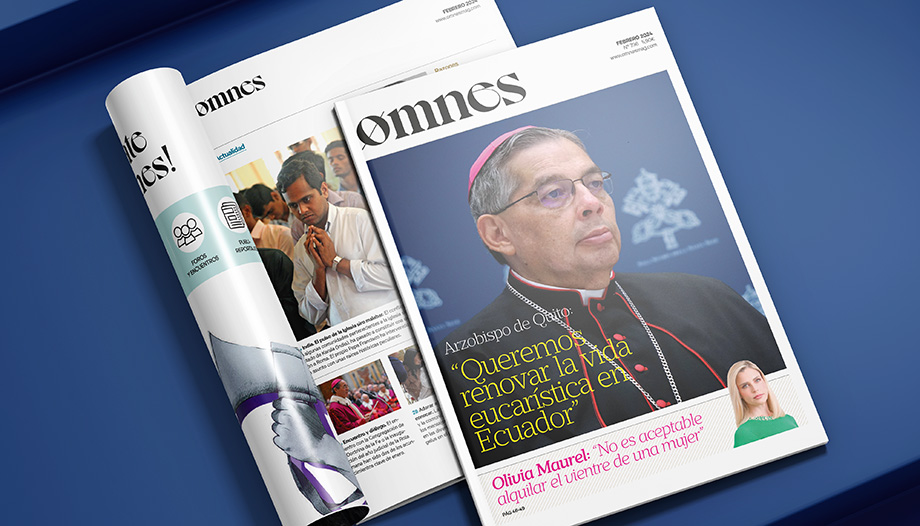
 We return with joy to the Eucharist!
We return with joy to the Eucharist!





